Indian fellowship program concludes in Bonn
The multimedia site “grow.green.india” is the productive result of the Meeting and Exchange Project for Indian Journalists, which has just wrapped up in Bonn. For seven weeks, six journalists from across India enjoyed intense training in multimedia journalism and had ample opportunity to produce their own reports for the site.
![]() read more
read more
20 free Google Chrome apps to boost your productivity
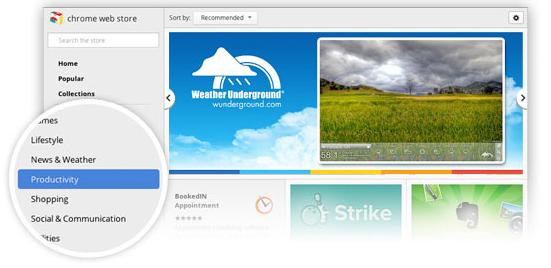
Google Chrome might well become the world’s most popular browser this year. It has already overtaken Mozilla Firefox and is well positioned to overtake Internet Explorer whose share dropped from 46 to 38.5 percent last year.
Chrome is a very easy browser to use and offers a number of useful extensions and apps. Google has redesigned Chrome’s interface allowing you to shift between most visited sites and Chrome apps. That means you can significantly increase your browser’s functionality.
So how can journalists make the best use of Google Chrome? Here are 20 free apps to check out and let us know if can recommend useful Chrome apps for journalism.
![]() read more
read more
Indonesia’s media struggles to maintain independence
In Indonesia, like in many Asian countries, the production of palm oil is a contentious issue. On the one hand, palm oil plantations and the palm oil industry create jobs and income. On the other hand, there are controversial land issues involved. Environmentalists criticize the disastrous effects huge palm oil plantations have on biodiversity.
The media can play a decisive role in structuring the debate and making arguments more transparent for the public. In Indonesia, one of the key players in this debate is the NGO SAWIT Watch Indonesia. Its Programme Director Rahmawati Retno Winarni discussed the relationship between the Indonesian media and organizations representing parts of civil society with DW Akademie’s Patrick Leusch.
This interview was recorded in front of a live audience during this year’s European Development Days in Brussels.
At the European Development Days, DW Akademie presented interviews and debates with representatives from politics, media and international development organizations. Each interview touched on a different aspect of media development.
Organized by the European Commission, the European Development Days is Europe’s premier forum on international affairs and development cooperation. This year, the international conference focused on food security, inclusive growth and engaging the private sector for development.
DW Akademie interviews and debates held at the conference are available on our homepage, as well as over Vimeo and Facebook.
Keeping safe in protests
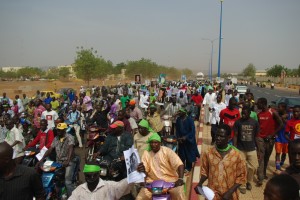 As journalists we often have to cover protests. When people are passionate enough about an issue to get out onto the streets, it usually means there is a story worth telling. And when protests get out of hand that can be newsworthy too. But how to stay safe when covering protests? Below are a few points I keep in mind when I’ve got a protest to cover. I’m sure I’ve missed some good tips though so comment below with any advice you’d like to add.
As journalists we often have to cover protests. When people are passionate enough about an issue to get out onto the streets, it usually means there is a story worth telling. And when protests get out of hand that can be newsworthy too. But how to stay safe when covering protests? Below are a few points I keep in mind when I’ve got a protest to cover. I’m sure I’ve missed some good tips though so comment below with any advice you’d like to add.
![]() read more
read more
Inventive, innovative and entrepreneurial in Africa
Stories featuring the growing number of tech hubs, start-ups and co-working spaces in Africa are very prominent across international media at the moment.
Below is a round up of recent articles. But first here’s something visual to get a picture of this trend.
![]() read more
read more
What makes a person digitally literate?
Bangladeshi new media pioneer Shahidul Alam tells DW Akademie about the skills and tools that make a person digitally literate. In this interview, he talks about the way to improve digital literacy in Bangladesh and the meaning of more internet access in the country.
UNESCO has defined digital literacy as “the ability to understand and use information in multiple formats from a wide range of sources when it is presented via computers”. With the emergence of social networking, digital literacy has become a major factor in enabling people to raise their voices, communicate, collaborate and pursue wide-scale social and political reforms.
People begin to think digitally when material things are not the only measurable items, Shahidul Alam says. As a promoter of new media, he helped introduce email to Bangladesh in 1994 and set up the first web portal in the country. Alam is also a founding member and advisor in the LEARN Foundation, which is dedicated to information and communication technology (ICT) training in rural regions.Watch the video interview and find out more:
![]() read more
read more
Understanding your target audience
By Bettina Ruigies
Today’s fast moving media environment requires a lot of flexibility from media workers. Multimedia skills are a must. Journalists need to be able to produce stories for radio or television, print or online. At the same time, digitization, the Internet and affordable equipment enables anyone who wishes to open a TV station on YouTube or at least run a blog site.
All this technical innovation offers tempting perspectives for hard working and talented journalists. But frustration and failure might set in when it turns out that hardly anybody is watching or reading.
![]() read more
read more
How do you come up with ideas for feature articles?

Do feature articles have to be about catastrophes or celebrities to be good? According to the award-winning German print journalist, Henning Sußebach, not at all. Sußebach believes that intriguing topics can be found directly on your doorstep. In this blog post, he explains how ideas taken from everyday life can be made into stories that engage readers.
![]() read more
read more
TV journalist killed in Tanzania
Tanzanian television journalist Daudi Mwangosi died on Sunday during clashes between police and supporters of an opposition political party.
The Channel Ten journalist was killed in the village of Nyololo – about 500 km west of the capital Dar es Salaam.
Mwangosi was covering the opening of a local office of the Party for Democracy and Progress – CHADEMA.
Neville Meena, Secretary-General of the Tanzania Editors’ Forum (TEF), told Reuters that police fired a tear gas canister into Mwangosi’s stomach at close range.
“It was a deliberate move by the police, who clearly targeted this journalist. Eyewitnesses said the journalist was surrounded by police, beaten up and brutally killed.”
Mwangosi was elected chairman of the Iringa Press Club in 2011.
The International Federation of Journalists has condemned the killing and demanded an immediate inquiry.
The Committee to Protect Journalists says its “the first work-related fatality” it has documented in Tanzania since the organisation began keeping detailed records in 1992.
Equipment: Video Journalist
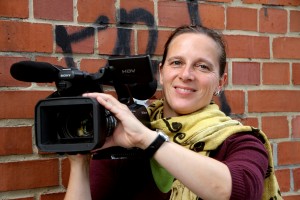 Gerlind Vollmer has been working as a freelance VJ reporter for Deutsche Welle since 2006. She has been working as a project manager and trainer for the Africa team at Deutsche Welle’s training center DW Akademie in Berlin since 2009. She takes us behind the scenes and shows which equipment she uses in the field to produce her VJ reports.
Gerlind Vollmer has been working as a freelance VJ reporter for Deutsche Welle since 2006. She has been working as a project manager and trainer for the Africa team at Deutsche Welle’s training center DW Akademie in Berlin since 2009. She takes us behind the scenes and shows which equipment she uses in the field to produce her VJ reports.
“It is important that a VJ journalist remains mobile and flexible. That’s why I’m no fan of dragging a heavy tripod along and often leave it at home. I can always find a chair, a table or a wall which can serve as a perfect tripod. On the spot, I’m mostly concerned with everything being at hand the very minute I need it, that’s why I always put on trousers with a lot of roomy pockets. Also, a VJ should never forget to put the headphones on while shooting – never ever!”

Foto:Steffen Leidel



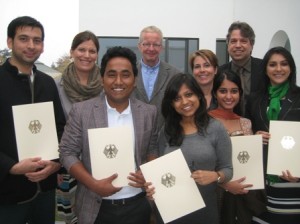


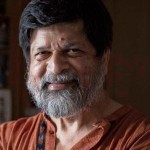





Feedback